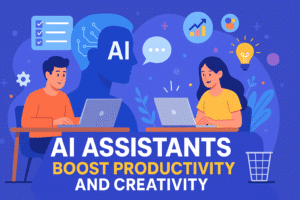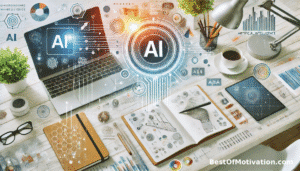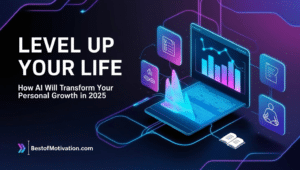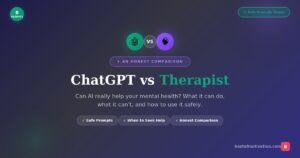In today’s fast-paced world, productivity is a key factor in achieving both personal and professional success. With the advancement of technology, particularly artificial intelligence (AI), tools like ChatGPT are making it easier to streamline tasks, manage time, and improve overall efficiency. The benefits of ChatGPT for productivity are numerous, as it has emerged as a versatile assistant that can enhance productivity in many ways.
This article explores the benefits of ChatGPT for productivity, covering how it assists in communication, task management, content creation, customer support, and more. We’ll delve into practical applications, share case studies, and provide tips on how to get started with ChatGPT to boost your productivity.
What is ChatGPT?
ChatGPT is an AI language model that can understand and generate human-like text. It has been trained on vast amounts of data, enabling it to simulate conversations, draft content, answer questions, and assist with various tasks. Unlike traditional chatbots that rely on scripted responses, ChatGPT’s advanced capabilities allow it to engage in more natural and dynamic interactions.
The adaptability of ChatGPT makes it useful across multiple industries, from e-commerce and education to healthcare and finance. Businesses use it to automate routine tasks, while individuals leverage it to manage daily activities, improve learning, and even foster creativity. Learn more about how AI like ChatGPT is revolutionizing communication and business at Harvard Business Review.
Why Productivity Matters in Today’s World
Productivity is essential because it directly affects the success of both businesses and individuals. Efficient task management, streamlined communication, and effective time management are all critical components of productivity. Companies that maximize their productivity can reduce costs, increase profits, and stay competitive. For individuals, being productive means achieving more in less time, leading to a better work-life balance.
AI tools like ChatGPT address these needs by automating processes, minimizing manual work, and allowing users to focus on high-priority tasks. As organizations continue to adopt digital transformation strategies, integrating AI solutions like ChatGPT is becoming crucial to maintaining a competitive edge in a fast-paced environment. Read more about the role of AI in boosting productivity in businesses on Forbes.
Key Benefits of ChatGPT for Productivity
Enhanced Communication
One of the primary benefits of ChatGPT is its ability to streamline communication. Whether it’s drafting emails, setting up meeting agendas, or responding to inquiries, ChatGPT ensures that communication is clear, concise, and efficient. Here are some practical ways it can enhance communication:
- Email Drafting: ChatGPT can help write, edit, and proofread emails, saving time and ensuring a professional tone. It can also suggest responses to common client queries.
- Internal Messaging: Teams can use ChatGPT to summarize messages, convert notes into clear updates, and even generate responses for internal communications.
- Customer Interaction: For businesses, ChatGPT can handle basic customer queries, ensuring quick and consistent responses. This reduces the workload for customer support teams and improves customer satisfaction.
Learn more about how AI is transforming business communication on Harvard Business Review.
Time Management & Task Automation
Efficient time management is crucial for productivity, and ChatGPT excels in automating repetitive tasks that often consume a significant portion of the workday. By automating these tasks, ChatGPT helps users save time and allocate their efforts to more critical activities. Some examples include:
- Meeting Scheduling: ChatGPT can integrate with calendar tools to coordinate meetings, check availability, and suggest optimal time slots.
- Task Reminders: It can provide reminders for important tasks, ensuring nothing is overlooked.
- Routine Task Automation: Businesses can set up ChatGPT to handle tasks like data entry, appointment scheduling, and other repetitive processes.
By automating routine tasks, ChatGPT frees up valuable time, allowing professionals to focus on strategic and creative aspects of their roles. For insights into how AI supports task automation, check out this article on Forbes.
Content Creation & Editing
For content creators, marketers, and writers, ChatGPT is an invaluable tool. It can assist in generating ideas, drafting content, and even proofreading, speeding up the entire content creation process. Here’s how it can be used:
- Blog Posts: Generate drafts for blog articles on various topics. With ChatGPT’s ability to understand context, it can create well-structured, engaging content.
- Social Media Content: Create catchy captions, posts, and even hashtags for social media platforms. This helps in maintaining an active online presence without spending hours drafting content.
- Content Editing: ChatGPT can review content, suggest edits, and improve the readability of texts, making it easier to produce polished and professional material.
For more information on how AI is changing content marketing, visit the Content Marketing Institute.
Customer Support Enhancement
Customer support is a key area where ChatGPT can significantly improve productivity. It acts as a virtual assistant, providing real-time assistance to customers without the need for constant human intervention. Here are some ways it helps:
- 24/7 Support: ChatGPT can handle basic customer queries at any time, ensuring round-the-clock service. This is particularly beneficial for businesses that operate across different time zones.
- Troubleshooting: It can guide customers through troubleshooting steps for common issues, providing quick solutions and reducing the burden on human agents.
- Lead Qualification: For sales teams, ChatGPT can interact with potential leads, ask qualifying questions, and gather information, allowing sales representatives to focus on converting high-quality leads.
With ChatGPT managing initial customer interactions, businesses can improve response times, enhance customer satisfaction, and reduce operational costs. To understand how chatbots and AI enhance customer service, explore this article on Gartner.
Data Analysis & Reporting
Data is essential for making informed business decisions, but analyzing it can be time-consuming. ChatGPT simplifies this process by helping users interpret data sets, generate insights, and prepare reports. Here’s how it can assist:
- Data Interpretation: ChatGPT can analyze data, identify trends, and provide interpretations that highlight important patterns. This allows businesses to quickly understand their data without sifting through raw information.
- Report Generation: ChatGPT can help draft reports that summarize key findings, making it easier for teams to present data to stakeholders. It can also suggest actions based on the insights derived from the data.
This feature is especially useful for business intelligence teams looking to make data-driven decisions without spending excessive time on manual data analysis. Discover more about how AI assists in data analysis on Towards Data Science.
Learning & Skill Development
ChatGPT isn’t just for businesses; it’s also a great tool for individuals who want to learn new skills or expand their knowledge. Here are some examples:
- Language Learning: Users can practice conversations in different languages, improving fluency and comprehension.
- Coding Assistance: ChatGPT can help with coding by providing explanations, debugging assistance, and code suggestions. This is particularly beneficial for beginners who need a virtual tutor to guide them.
- General Knowledge: Users can ask ChatGPT to explain complex concepts in simple terms, making it easier to grasp new subjects.
By serving as a personalized tutor, ChatGPT adapts to the user’s learning style, making it an effective tool for continuous learning and skill development. For more insights on the future of AI in education, visit EdTech Magazine.
Challenges and Considerations
While ChatGPT offers numerous benefits, it’s important to be aware of its limitations and challenges. Here are a few considerations:
- Accuracy: ChatGPT can sometimes provide incorrect or misleading information, especially if the input is ambiguous. Users should verify important outputs to avoid errors.
- Ethical Considerations: There are concerns about data privacy and how AI models process and use information. Businesses must ensure compliance with data protection regulations.
- Over-reliance: Relying too much on ChatGPT for tasks may lead to a reduction in critical thinking and problem-solving skills. It’s important to use AI as a complement, not a replacement, for human intelligence.
Businesses should implement guidelines and best practices to ensure responsible and effective use of ChatGPT, mitigating potential risks.
Case Studies: Successful Implementation of ChatGPT for Productivity
Case Study 1: Enhancing Customer Support for E-commerce
An e-commerce company integrated ChatGPT into its customer support system, enabling it to manage a higher volume of customer queries during peak shopping periods. The result was a 30% reduction in response time and improved customer satisfaction. Learn more.
Case Study 2: Streamlining Content Creation for Digital Marketing
A digital marketing agency used ChatGPT to draft blog posts, social media content, and ad copy. This allowed the agency to produce 40% more content, freeing up creative teams to focus on strategy and campaign planning. Read more.
Case Study 3: Automating Task Management in a Tech Startup
A tech startup integrated ChatGPT with their task management software, using it to automate meeting scheduling, task allocation, and project updates. This led to better task coordination and reduced the workload for project managers. Learn about the benefits of AI in task management.
How to Get Started with ChatGPT
Integrating ChatGPT into your workflow can be straightforward. Here’s a step-by-step guide:
- Identify Use Cases: Determine specific areas where ChatGPT can add value, such as automating customer support or drafting content.
- Choose a Platform: Select a platform that offers ChatGPT integration. Options include using the OpenAI API or partnering with a service provider that integrates ChatGPT into existing tools. You can explore ChatGPT on the OpenAI official page.
- Train and Customize: While ChatGPT is powerful out-of-the-box, customization can make it more effective. Tailor it to understand industry-specific terms or frequently asked questions.
- Monitor and Adjust: Regularly monitor ChatGPT’s outputs to ensure accuracy and effectiveness. Adjust prompts and settings as necessary to improve performance.
Conclusion
ChatGPT is a versatile tool that enhances productivity by simplifying tasks, improving communication, and automating repetitive processes. Its adaptability allows businesses and individuals to focus on what matters most, leaving routine tasks to the AI. Whether you’re a business looking to streamline operations or an individual seeking to boost daily productivity, ChatGPT can be a valuable asset.
As technology continues to advance, embracing tools like ChatGPT will be crucial for staying efficient, competitive, and productive in a rapidly evolving world.












